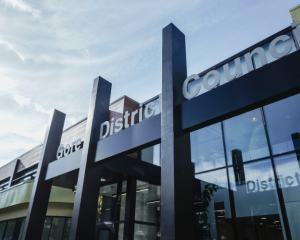The system involves funding GPs and community-based organisations to provide support for young people aged 12 to 19 for mental health and drug and alcohol issues.
Available funding is more than $565,000 in the current financial year.
Large parts of the South, including rural Southland and Queenstown Lakes, do not have a funded service for the age group.
A contract with the region's primary health organisation, WellSouth, covers certain areas, including Clutha and Central Otago.
Of an estimated more than 27,700 young people in the region, more than 4000 were estimated to need the service.
Survey feedback from people in the sector was included in the report.
In Dunedin, Mirror Services is funded to provide the service, and some respondents feared it could be downgraded if the region's funding needed to be shared more evenly.
The lack of a service in rural areas meant young people were referred to hospital-level services, to which they were often unable to travel, or they could not afford the GP visit to get the referral.
There was confusion about who needed the service.
"A number of key stakeholders noted that there is some confusion about access criteria and the role of brief interventions in mental health practice.
"In particular, key stakeholders noted that there needs to be some flexibility around the interpretation of risk, as self-harm thoughts can be common and do not always mean there is a risk.''
There was also thought to be a lack of support and training for GPs and nurses in some areas.
Life Matters Suicide Prevention Trust chairwoman Corinda Taylor said the report showed the system was "fragmented'' and there was too little access to vital support.
"Youth and some families cannot afford repeated GP visits. It would appear that rural areas are a huge problem. Dunedin has quite a few different avenues to take to get help.
"It needs to be free or at least affordable and there should be no waiting time. Early intervention can save lives,'' Mrs Taylor said.
DHB planning and funding director Sandra Boardman told the Otago Daily Times a "business case'' for a system rejig was being developed, and a decision would be made by the end of next month.











